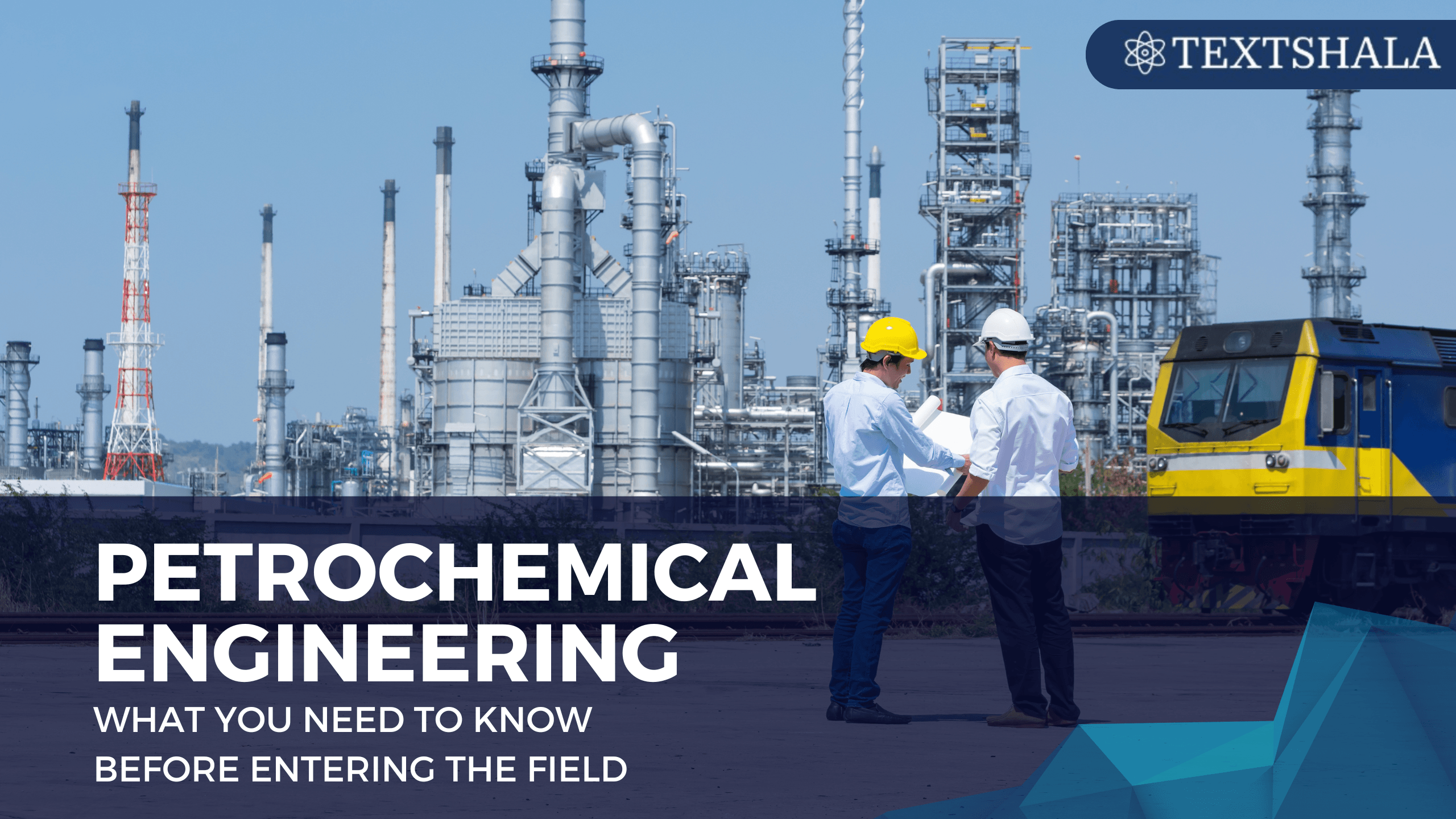B.Tech vs M.Tech in Chemical Engineering: Which One Should You Choose?

Explore the key differences between B Tech Chemical Engineering and M.Tech Chemical Engineering, covering eligibility, course structure, career scope, salaries, and future prospects to help students choose the right academic path for long-term growth.
What is B Tech Chemical Engineering?
A B.Tech in Chemical Engineering, gives students a foundational understanding of chemical processes and engineering principles.
Eligibility
- Completion of 10+2 with Physics, Chemistry, and Mathematics.
- Admission through entrance exams like JEE Main, JEE Advanced, or state-level tests.
If you’re preparing for competitive exams, check out our guide on Best Engineering Books.
Course Structure
- Duration: 4 years (8 semesters)
- Core subjects include:
- Thermodynamics
- Heat and Mass Transfer
- Process Equipment Design
- Chemical Reaction Engineering
- Plant Design and Safety
- Thermodynamics
Skills Developed
- Analytical and problem-solving skills
- Knowledge of industrial chemical processes
- Equipment design and process optimization
- Basics of project management and quality assurance
Career Opportunities After B.Tech
Graduates can directly enter the job market in roles like:
- Process Engineer
- Production Engineer
- Chemical Process Engineer
- Quality Assurance Officer
Industries hiring B.Tech chemical engineers include oil and gas, petrochemicals, pharmaceuticals, fertilizers, and food processing.
What is M.Tech in Chemical Engineering?
An M.Tech in Chemical Engineering is a two-year postgraduate program that focuses on advanced topics, research, and specialized areas of chemical engineering.
Eligibility
- Completion of a B.Tech or BE in Chemical Engineering (or related field).
- Qualifying score in GATE (Graduate Aptitude Test in Engineering) or equivalent exams.
For detailed exam preparation, see Best GATE Preparation Books
Course Overview
- Duration: 2 years (4 semesters)
- Advanced subjects:
- Process Modeling and Simulation
- Advanced Mass Transfer
- Biochemical and Environmental Engineering
- Computational Methods in Chemical Engineering
- Process Modeling and Simulation
Specializations Available
- Environmental Chemical Engineering
- Petrochemical and Refinery Engineering
- Biochemical Engineering
- Process Systems Engineering
Skills Gained
- Research and analytical capabilities
- Advanced process design and control
- Exposure to industrial automation and simulations
- Expertise in a chosen specialization
Research and Higher Study Opportunities
- Opens doors to PhD programs
- Opportunities in academic teaching and research institutions globally
Key Differences Between B.Tech and M.Tech
| Factor | B.Tech | M.Tech |
| Eligibility | 10+2 with PCM | B.Tech + GATE |
| Duration | 4 years | 2 years |
| Curriculum Focus | Fundamentals, practical exposure | Advanced research and specialization |
| Cost & Time Investment | Higher (4 years) | Lower (2 years after B.Tech) |
| Career Scope | Entry-level engineer roles | Senior roles, R&D, academia |
| Typical Job Titles | Process Engineer, Plant Operator | Research Scientist, Project Manager |
| Salary Growth Potential | Moderate | Higher with experience and expertise |
Career Opportunities
Both degrees offer strong career prospects but differ in job roles and progression:
After B.Tech
- Process Engineer
- Plant Operator
- Production Supervisor
- Quality Assurance Specialist
After M.Tech
- Research Scientist
- Chemical Process Engineer (advanced roles)
- Environmental Chemical Engineer
- Project Manager or Lecturer in engineering colleges
Demand in India vs Abroad
- PSU companies such as ONGC, IOCL, and NTPC have a high demand for B.Tech graduates.
- For positions in university teaching, high-end R&D, and international research, M.Tech holders are preferred.
Salary Expectations
- B.Tech (Entry-level): ₹3.5 – ₹6 LPA
- B.Tech (5+ years experience): ₹7 – ₹12 LPA
- M.Tech (Entry-level): ₹6 – ₹10 LPA
- M.Tech (Senior/Research roles): ₹12 – ₹20+ LPA
- Abroad (Master’s degree in chemical engineering): $70,000 – $110,000 annually
Government sector salaries are often standardized but come with benefits like job security and perks.
Which One Should You Choose?
- Choose B.Tech if:
- You want to enter the job market early.
- Financial constraints prevent longer education.
- You aim for operational or plant-based engineering roles.
- You want to enter the job market early.
- Choose M.Tech if:
- You’re interested in research, academia, or specialization.
- You want higher-level technical or managerial positions.
- You plan to pursue a PhD or work abroad in niche fields.
- You’re interested in research, academia, or specialization.
Tips for Students Deciding Between B.Tech and M.Tech
- Examine the placement records of prestigious universities.
- Examine specializations (such as biotech and green energy) that correspond with the needs of the industry going forward.
- Take part in internships to learn about practical uses.
- To acquire knowledge, go to workshops and seminars and make connections with former students.
Final Thoughts
Whether a B.Tech or M.Tech in Chemical Engineering is preferable depends on your career goals, financial situation, and interest in research or industry positions.
Decide whether getting a master’s degree in chemical engineering is the right course of action for you after gaining experience and earning a solid chemical engineering degree.
FAQs
Is M.Tech necessary after B.Tech in chemical engineering?
No, it’s not required. Although an M.Tech can speed up growth in specialized fields, many engineers go on to have successful careers after earning a B.Tech alone.
Which has better scope in India: B.Tech or M.Tech?
While M.Tech offers advanced research, academic, and managerial roles with higher long-term growth, B.Tech offers a wider range of immediate jobs.
Can I pursue a PhD after M.Tech in chemical engineering?
Yes, both in India and overseas, obtaining a PhD usually requires having an M.Tech.
Is B.Tech in chemical engineering good for PSU jobs?
Yes, PSUs like ONGC, GAIL, and IOCL actively recruit B.Tech graduates through GATE.




